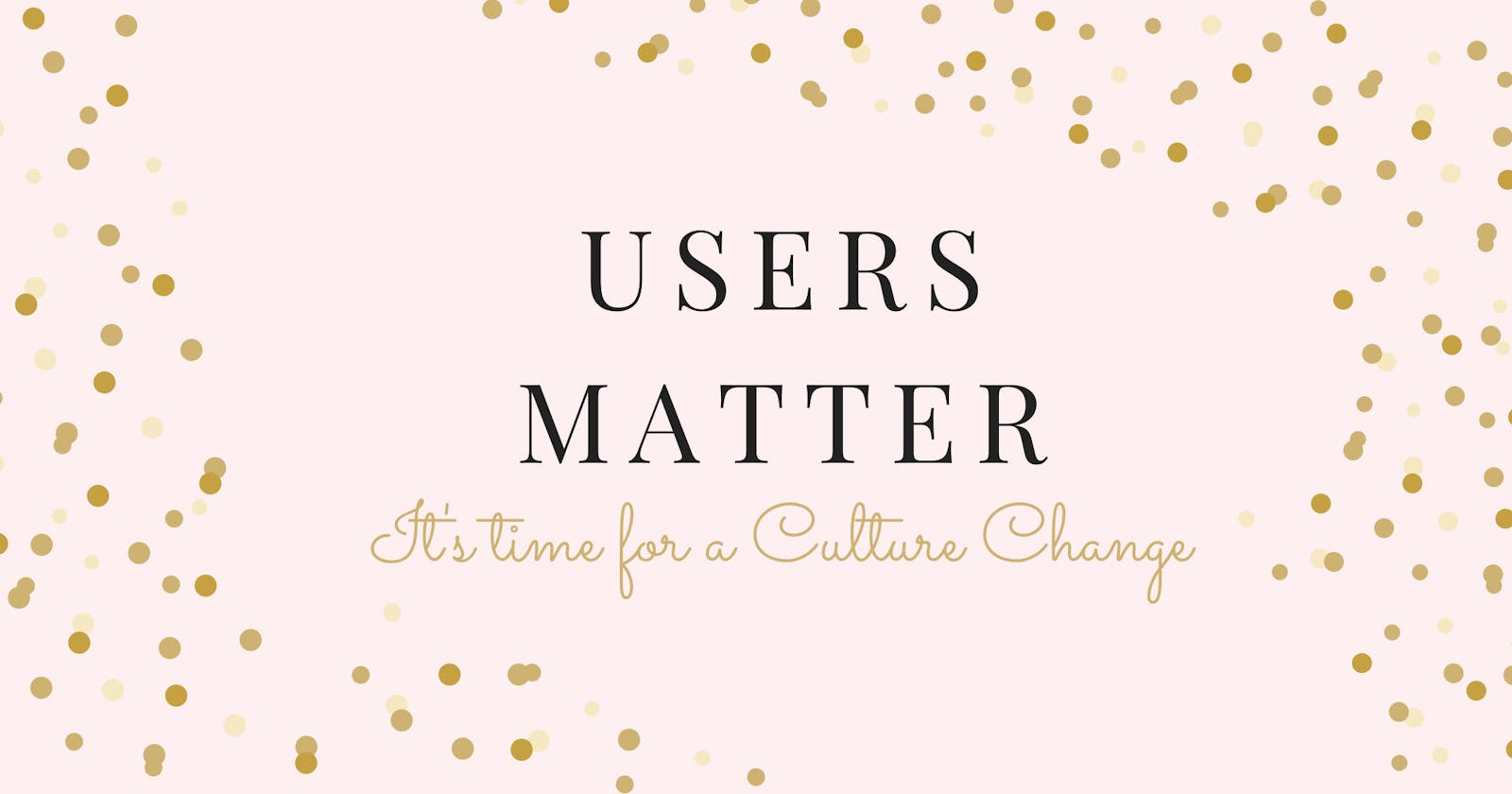When I first began my journey into the tech world, one of the first things I did was to try and connect with the overall tech community. I joined groups on Facebook and tried to follow everyone on Twitter that I could find that did what I wanted to do.
I actually highly recommend this for anyone new to the field because you can actually learn a lot just from trying to understand memes and reading posts from other people. However, there is a huge problem with the tech community and it needs to be addressed.
"It's an ID10T error" "It's a problem between the desk and the chair" "It's a problem in the chair, not the computer"
These are phrases that everyone knows and says all the time.
Now, if you are venting a little bit to your colleagues, then sometimes these phrases are okay to use. We all have frustrating users who push us to our limits and we need a healthy way of expressing those feelings.
However, what I've noticed is, that a lot of people in tech actually say these phrases to users and use them in their tickets and they think it is okay.
They think it's okay to be rude or mean to a user because they don't understand something.
They think it's okay to be rude and mean to a user because they don't submit a ticket and call you instead.
They think it's okay to be rude and mean to users just for existing.
And this has to change.
Working in Tech=Working in Customer Service
Every job in the world provides a service to someone else. Tech is no different.
A very important lesson I learned in my CS days is that you have external customers and you have internal customers. The external customers are the people who purchase or request items or services outside of your company. The internal customers are your coworkers who request services from you or your team.
We are failing our internal customers a.k.a. our users.
So how do we change our tech culture to treat our users better?
- Breathe Before You Respond
If someone is getting on your nerves, take a small break before replying. This small breather, may save you from saying things that you shouldn't say. Use this time to reframe your mindset from this person is a (insert curse word here) to what can I do to make this situation better?.
2.Think About the Issue from Their Perspective
If a user reports a break but it turns out they weren't using your product correctly, instead of being condescending, take a second to think. Did I document this process in a way user's can understand it? Did I provide proper training for their department? Was this user included in the training? Has the process changed since the training and our department didn't inform them? Are the training resources available to everyone?
Retrace the steps that your department took when this was put in place and since then. If you don't provide the proper documentation and make it easily accessible, they will have to contact you everytime. If you don't train them the right way, they don't know. If you make a change and don't tell them, they can't know that they are doing it wrong.
Take these things into consideration, before you reply. If you realize that you have missed a step (or someone in your department), fix the problem.
These may seem like very obvious steps, but I guarantee we aren't taking the time to do them every time a ticket like this comes to our desk.
If our departments do not fix our user relationships, then they won't trust us. They will resent us. They will not ask for help when it's needed and they will try to fix things themselves. They will also bad mouth your department constantly, and this definitely makes it's way up the chain.
We have to do better and we can do better.
I have many more tips and tricks up my sleeve for better user relations, but If you can't change your attitude and mindset, then none of them will actually help you.
I'm going to be sharing a lot more blog posts on this subject and I'd love to hear how you are making sure that users matter in your org. Share your stories with me on Twitter using #usersmatter and it may end up in a blog post.

